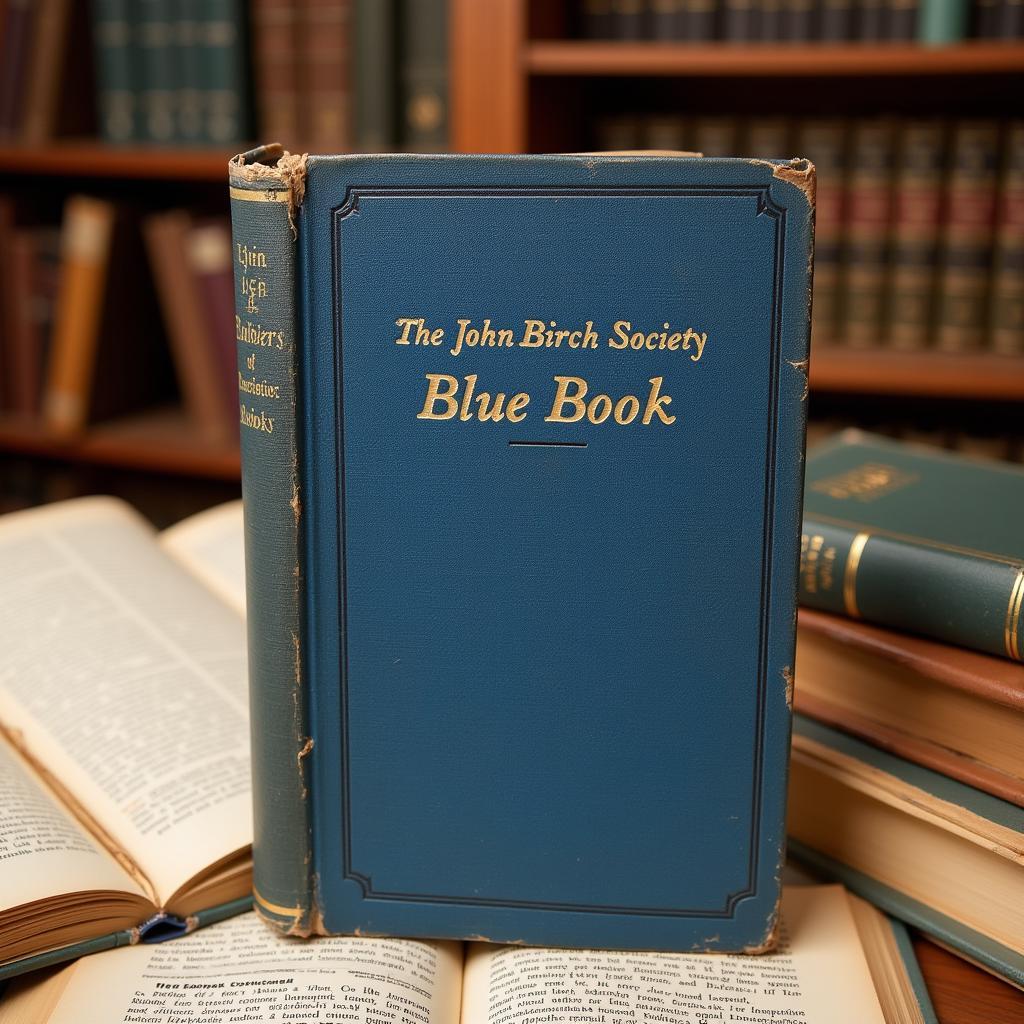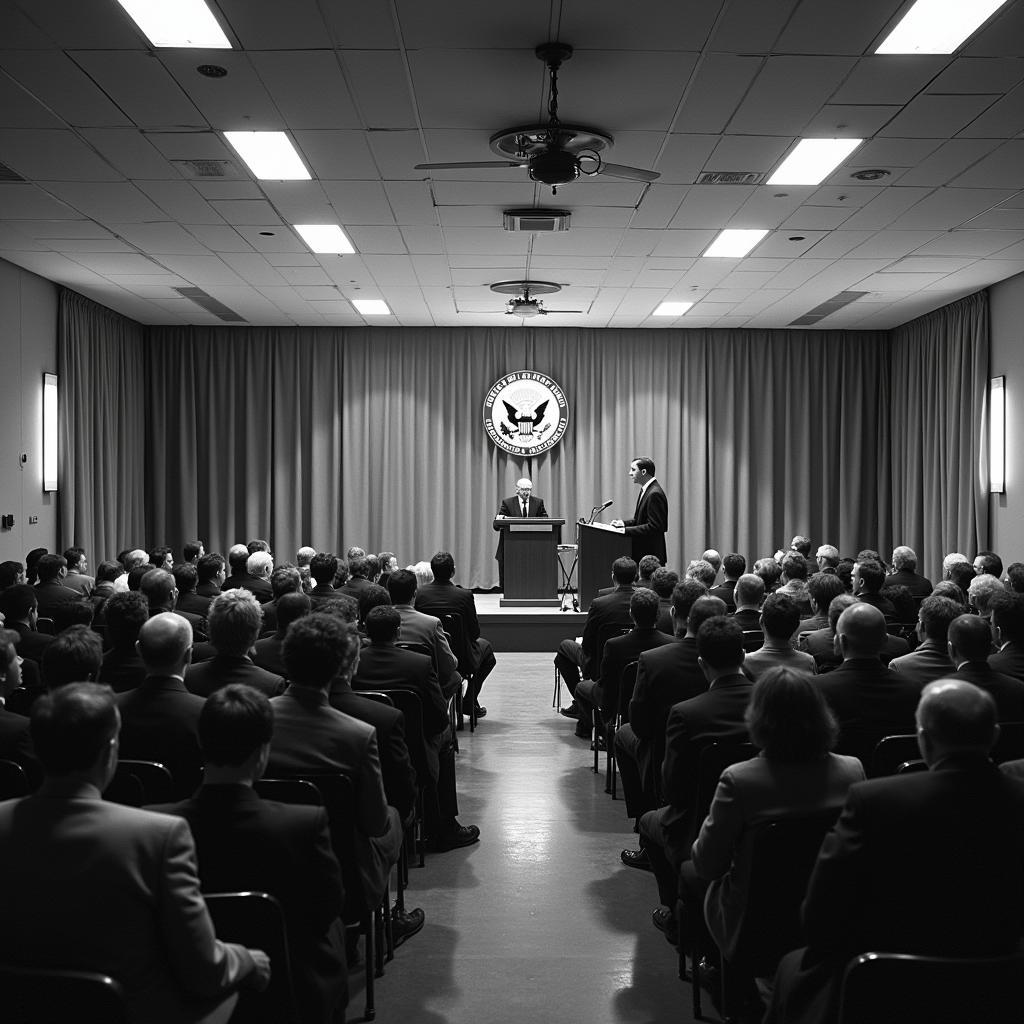The John Birch Society Blue Book is a foundational text for the ultraconservative John Birch Society, outlining its ideology, goals, and strategies. While it offers a glimpse into a particular strain of American political thought, it’s crucial to approach its contents within a framework of historical context and critical thinking.
The Origins and Purpose of the Blue Book
Robert W. Welch Jr., a retired candy manufacturer, founded the John Birch Society in 1958, naming it after John Birch, a U.S. military intelligence officer killed by communist forces in China shortly after World War II. Welch envisioned the society as a bulwark against what he perceived as creeping communism and socialist influences within the United States government and institutions.
Published soon after the society’s formation, the Blue Book serves as both a manifesto and a guidebook for members. It lays out Welch’s core beliefs, including his controversial view that a communist conspiracy was actively working to subvert the United States from within, even suggesting the involvement of high-ranking government officials.
Key Themes and Arguments
The Blue Book centers around several recurring themes:
- Anti-Communism: This forms the bedrock of the text, with Welch arguing that communism was an existential threat to American freedom and way of life. He saw communist influence everywhere, from government policies to social movements.
- Limited Government: Welch advocated for a drastically smaller federal government, believing that excessive government intervention eroded individual liberty and paved the way for socialism.
- Free Market Capitalism: The Blue Book champions laissez-faire economics, arguing that a free market with minimal government regulation was essential for prosperity and individual freedom.
- Constitutional Originalism: Welch emphasized a strict interpretation of the U.S. Constitution, believing that any deviation from the Founding Fathers’ original intent was a dangerous departure.
 The Blue Book cover
The Blue Book cover
The Blue Book’s Impact and Legacy
The John Birch Society and its Blue Book have had a complex and controversial legacy in American politics.
- Influence on Conservatism: While the society’s more extreme views remained outside the mainstream, its emphasis on anti-communism, limited government, and traditional values resonated with a segment of the growing conservative movement in the United States.
- Controversies and Criticism: The Blue Book’s accusations of communist infiltration, often lacking substantial evidence, drew widespread criticism. Many saw its rhetoric as conspiratorial and McCarthyist, contributing to a climate of fear and suspicion.
- Enduring Influence: Despite its controversial history, the John Birch Society continues to exist, and the Blue Book remains a key text for its members. Its ideas continue to influence certain factions within conservative circles, particularly those advocating for limited government and individual liberty.
Understanding the Blue Book Today
Studying the John Birch Society Blue Book offers valuable insights into a particular brand of American conservatism that gained traction during the Cold War era. However, it’s crucial to approach it with a critical lens, recognizing its historical context, the controversies surrounding its claims, and its impact on political discourse.
 A John Birch Society meeting
A John Birch Society meeting
Frequently Asked Questions about the John Birch Society Blue Book
1. Is the John Birch Society still active today?
Yes, the John Birch Society remains active, although its membership and influence are significantly smaller than during its peak in the mid-20th century.
2. What are the John Birch Society’s main beliefs?
The society advocates for limited government, free market capitalism, anti-communism, and a strict interpretation of the U.S. Constitution.
3. Why is the John Birch Society considered controversial?
The society has been criticized for its conspiratorial views, particularly its claims of communist infiltration within the U.S. government and other institutions.
4. How did the Blue Book impact American politics?
The Blue Book contributed to the rise of anti-communist sentiment and influenced the development of the modern conservative movement in the United States.
5. Where can I learn more about the John Birch Society and its Blue Book?
You can find more information about the John Birch Society and its Blue Book through reputable historical sources, academic journals, and online archives.
For support in understanding extremism and promoting peace, contact the Society For Peace at:
Phone Number: 02043854663
Email: [email protected]
Address: Khu 34, Bắc Giang, 260000, Việt Nam
Our dedicated team is available 24/7 to assist you.